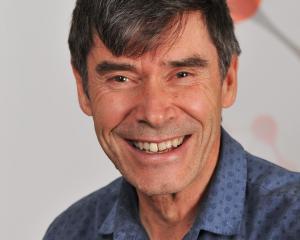
New Zealand Multiple Birth Association president Fiona Purchas, of Wellington, said that while national figures had shown a rise in the numbers of multiple births, the increase had happened at the same rate as in the general population.
The New Zealand Herald reported 1774 twins were born last year - a rate of 27.8 twins in 100 births - compared with 984 twins born in 1980, at a rate of 19.5 twins in 1000 births.
Statistics New Zealand says there were 910 sets of twins and 20 sets of triplets born in 2010.
Mrs Purchas said the number of multiples born in New Zealand had "actually remained steady" compared with overall birth figures during the last decade, at between 1.5% and 2% of all births.
While the rise in multiple births and the reasons for the increase were interesting, the association was more concerned about what the statistics meant for the parents and families with twins and triplets, she said.
There were significant issues involved with delivery and ongoing care of multiple-birth siblings, Mrs Purchas said.
Dunedin mother Crystal O'Malley, of Corstorphine, said giving birth to her twins, Chase and Amelia, 13 months ago had brought huge lifestyle changes and financial pressures compared with the birth of their 3-year-old daughter.
"It was completely different. Like chalk and cheese.
"The huge lack of sleep was far worse and just the extra amount of organising which is needed just to get out of the house ... It really threw us."
The arrival of the twins meant the family had to buy a bigger car and move to a larger house, she said.
Soon, the family will have to upgrade to a van, once the twins grow out of their existing car seats, she said.
There was little that could be done to get "prepared" for the birth of twins, but the support of the local Dunedin multiple birth group had been reassuring, given there was a network of families to discuss their experiences.
"You don't know how much extra stuff you need until it happens. We were lucky we had lots of friends to help us with the extra set of baby gear you need," Ms O'Malley said.
The family became eligible for some assistance from Work and Income New Zealand, with a home-help service initially provided when Chase and Amelia were infants.
Families are eligible for the home-help assistance from Winz when they already have a child aged under 5 years, although this was not well advertised for new parents having twins, Ms O'Malley said.
Mrs Purchas said families with twins were the "invisible visibles" of New Zealand.
"We're actually a very small group of people within the population and have a very, very tiny voice. But everyone sees twins and triplets and loves having the idea of twins."
There needed to be more acknowledgement and understanding in society of the difficulties involved with multiple births and the impact they had on families, and from within the health system, Mrs Purchas said.
The health system was geared towards "singleton" births and many mothers had no concept of what multiple births involved until they were in that situation, she said.
Multiple births were a risk for both babies and their mothers. Approximately 50% of multiple births were premature, she said.
Twin births made up about 20% of admissions to neo-natal care for premature babies, yet multiples made up only about 5% of all births in New Zealand, she said.












